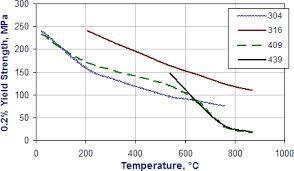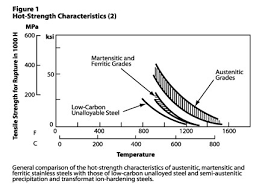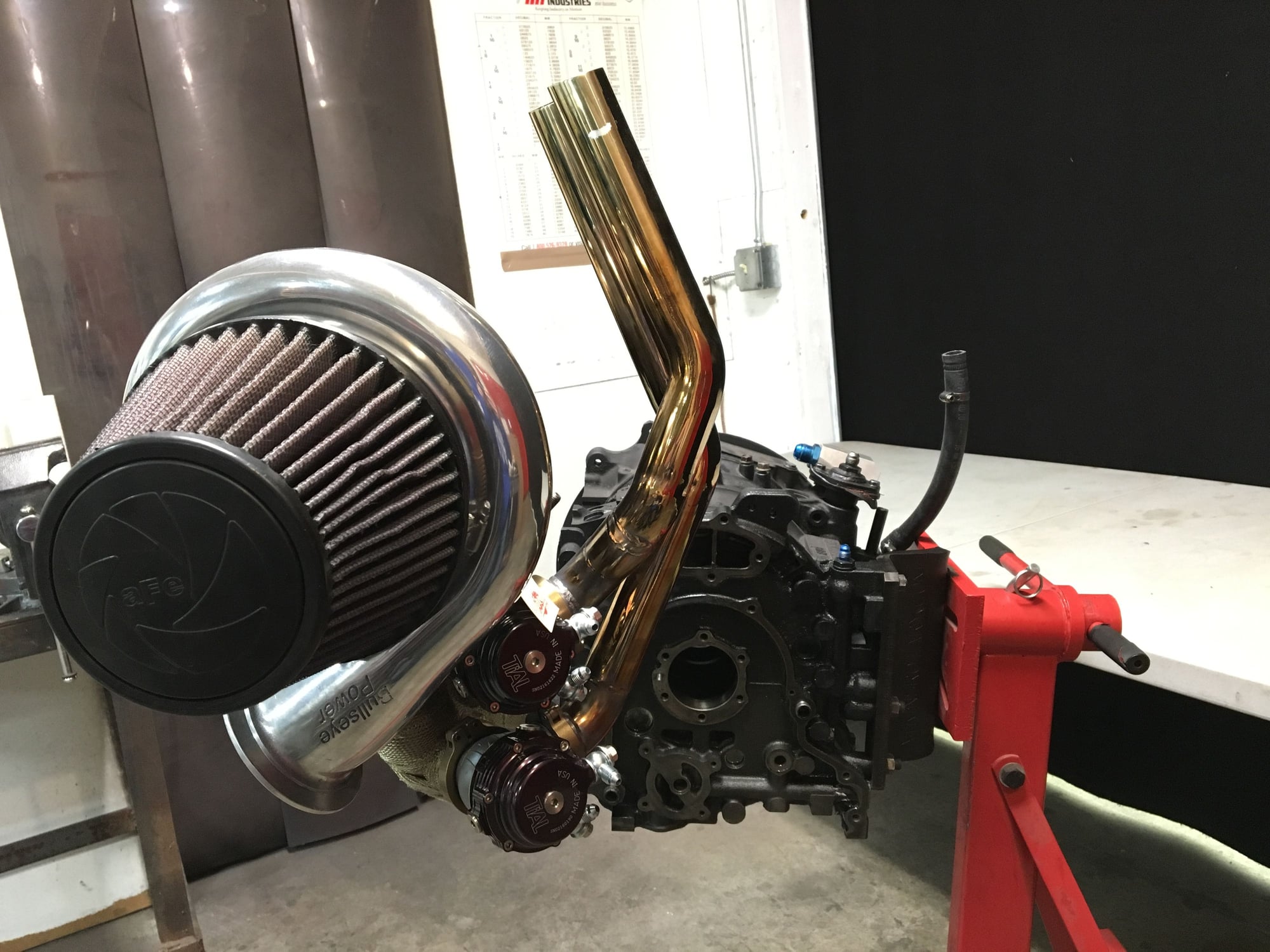13B REW single turbo exhaust manifold
#1
Registered
Thread Starter
13B REW single turbo exhaust manifold
I need an exhaust manifold for my RHD 13B REW single twin-scroll turbo swap (probably Greddy TD07S 25g). The steering column reduces the available space and the only off-the shelf manifold that might fit, the Turblown TBREW8 Turblown REW Swapped Rx-8 Turbo Manifold , puts the turbo in the wrong place and will cost me well over $2,000 with a new downpipe (the one I have won't fit with the turbo's new position), tax and delivery. There are custom builders over here, but again I'm looking at big money and will probably have to do the design work myself.
I'm therefore designing and building my own manifold, relying on buying and cutting up the tubes, bends (90 deg and 45 deg) and flanges and getting a professional to do the welding, followed by ceramic coating. However, I've been butting my head up against various dead ends over getting what I want without throwing shedloads of money at it, starting with Stainless 321 (very limited supply in the UK, no pre-formed bends, v v expensive) then Stainless 304 (lots of 1.5mm walled stuff; limited supplies of 2mm+ wall tube, what there is v expensive and I can find no off-the-shelf bends). Carbon steel would be far easier to make but I'm frightened by heat issues (it'll have to cope with the higher temperature of rotary exhaust gasses and the inlet manifold is far too close for comfort even with ceramic coatings).
I'm aware of the many pitfalls such as turbo weight, poor welds, cracking and heat distortion of the flanges. I'm also thinking hard over the runner diameters. I was leaning towards 1.5" for each to reduce turbo lag but am concerned over the 2" ID exhaust ports on my engine.
Before I spend hours of my time and loads of cash hunting further, can anyone give me their thoughts and some info on the manifold they're using?
Thanks for any help.
I'm therefore designing and building my own manifold, relying on buying and cutting up the tubes, bends (90 deg and 45 deg) and flanges and getting a professional to do the welding, followed by ceramic coating. However, I've been butting my head up against various dead ends over getting what I want without throwing shedloads of money at it, starting with Stainless 321 (very limited supply in the UK, no pre-formed bends, v v expensive) then Stainless 304 (lots of 1.5mm walled stuff; limited supplies of 2mm+ wall tube, what there is v expensive and I can find no off-the-shelf bends). Carbon steel would be far easier to make but I'm frightened by heat issues (it'll have to cope with the higher temperature of rotary exhaust gasses and the inlet manifold is far too close for comfort even with ceramic coatings).
I'm aware of the many pitfalls such as turbo weight, poor welds, cracking and heat distortion of the flanges. I'm also thinking hard over the runner diameters. I was leaning towards 1.5" for each to reduce turbo lag but am concerned over the 2" ID exhaust ports on my engine.
Before I spend hours of my time and loads of cash hunting further, can anyone give me their thoughts and some info on the manifold they're using?
Thanks for any help.
Last edited by Ian_D; 09-01-2015 at 02:55 PM. Reason: Can't get link to work properly
#2
Driving my unreliable rx8
Treadstone has pretty decent bent tubing prices and good thicknesses. I don't know why, but I think the 321 is not good for the use. on top of that your engine flanges probably won't come in 321. So that would be something else custom.
Go with carbon steel to design and build the manifold. just tack weld it for fitment. Then copy it with the better stuff to save money if you have mistakes.
http://www.treadstoneperformance.com...3A+Schedule+40
Go with carbon steel to design and build the manifold. just tack weld it for fitment. Then copy it with the better stuff to save money if you have mistakes.
http://www.treadstoneperformance.com...3A+Schedule+40
Last edited by logalinipoo; 09-01-2015 at 03:06 PM.
#3
No respecter of malarkey
iTrader: (25)
T321 is what you use to make it from thinner wall thickness to keep it light. T304 is ok if it's thick enough. The flange can be carbon steel if you don't mind it rusting. A lot of people on RX7Club use these:
McMaster-Carr
Sch. 10 thickness is OK for T304. If you want to build a bombproof poophouse use Sch. 40
McMaster-Carr
Sch. 10 thickness is OK for T304. If you want to build a bombproof poophouse use Sch. 40
#4
Registered
Thread Starter
Guys, thanks.
Your words were a great help straight away. I tacked 'Schedule 10' onto my Google search and found someone over here who can supply what I need (straight, 45 deg bends, 90 deg bends) in schedule 10 and schedule 40 T304 pipe at 1 1/2" and 2". I couldn't find any 1 3/4" or T321 though.
I'm doing my initial mock-up in plastic pipe as it's so easy to play around with. I'll probably do a carbon steel mock-up as well for the practise in cutting and some welding experience (I'm OK ish with my gasless MIG welder on carbon steel but leave anything requiring better equipment to professional welders).
Your words were a great help straight away. I tacked 'Schedule 10' onto my Google search and found someone over here who can supply what I need (straight, 45 deg bends, 90 deg bends) in schedule 10 and schedule 40 T304 pipe at 1 1/2" and 2". I couldn't find any 1 3/4" or T321 though.
I'm doing my initial mock-up in plastic pipe as it's so easy to play around with. I'll probably do a carbon steel mock-up as well for the practise in cutting and some welding experience (I'm OK ish with my gasless MIG welder on carbon steel but leave anything requiring better equipment to professional welders).
#6
Registered
I went with schedule 40 carbon steel from ace stainless(Welcome - Ace Race Parts). I think I paid just over $100 for the materials for the manifold. The downpipe was 16 gauge. I have a shitty flux core welder but was able to turn up the power to max and set in some deep penetrating welds on the .165" thick 2" pipe. The manifold weighs 25-30 lbs, you could drive a truck over it and I'm sure it wouldn't flex or bend. Its not that pretty, but it will probably outlast me.
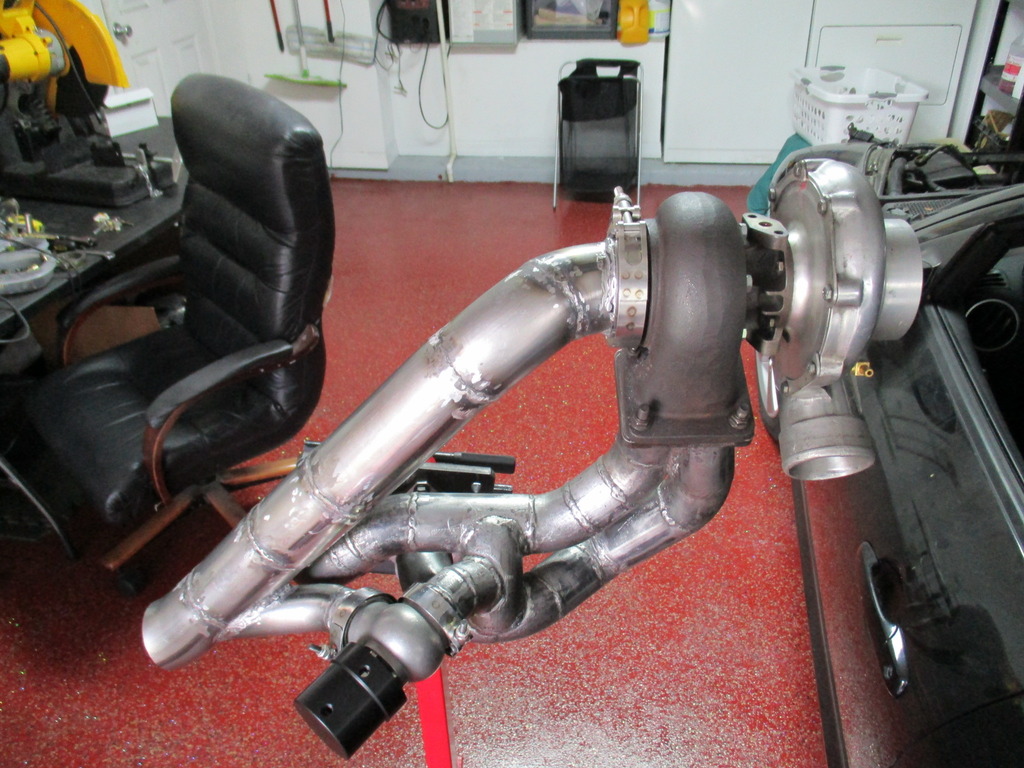
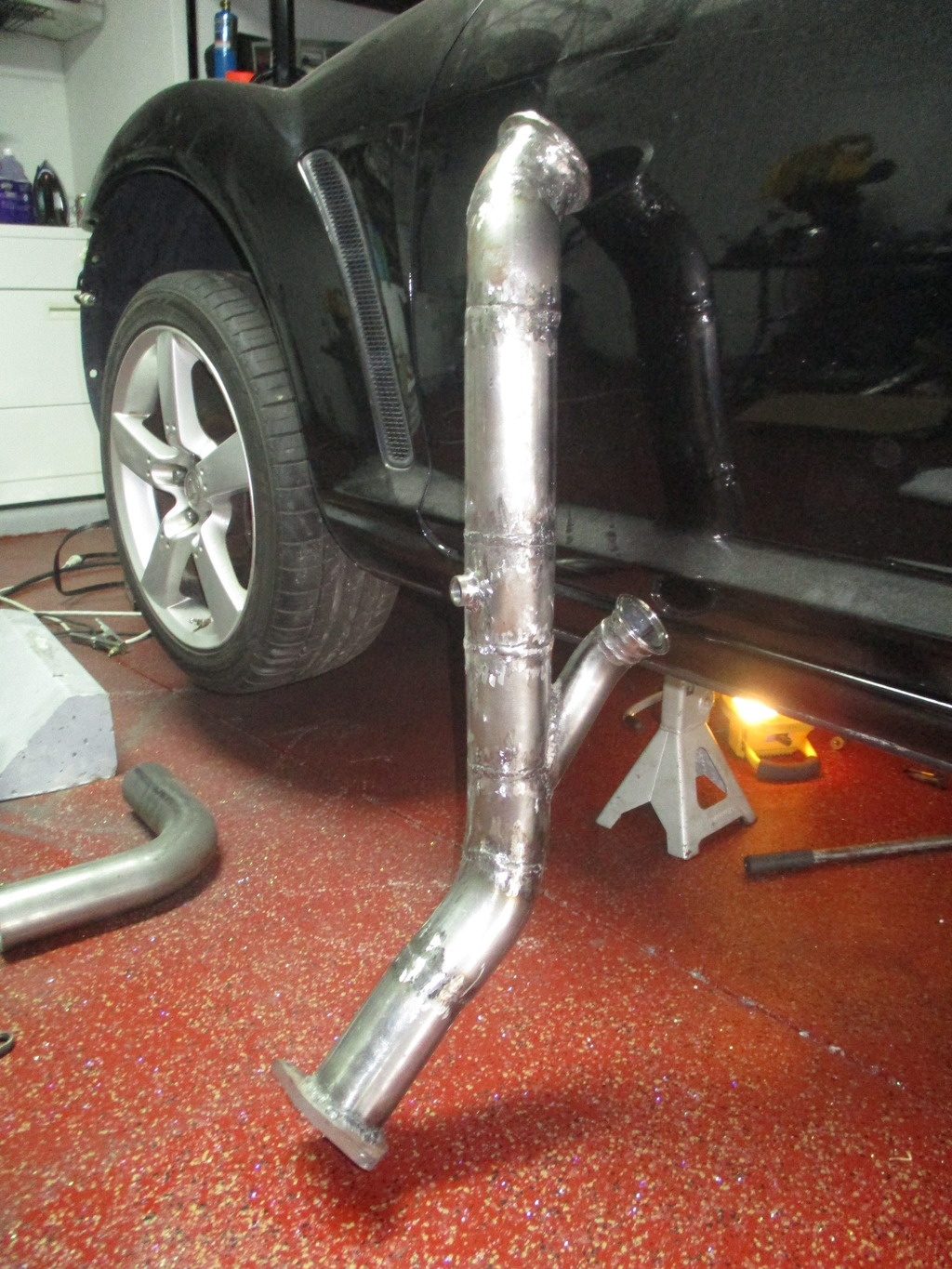


#8
Registered
Thread Starter
Stroker, thank you. I'm impressed with you getting the wastegate exhaust into the downpipe - it's the first time I've seen it done. I'd like to do it too but am constrained by my RHD car's steering column getting in the way and a fear that I'll make it then find I can't actually get it into position.
Also, if you think yours isn't pretty then you should see what my car came with. The builder was clearly very short of time and enthusiasm when he put it together. The 2 photos show the original 13B REW carbon steel exhaust manifold made by a professional builder that was on my car when I bought her.
The main photo shows the general arrangement of the bastardized 2" runners from an existing manifold joined into a single 3" tube to the turbo flange with a wastegate port on the bottom; the 3" tube is reinforced by strips of steel welded to it.
The second photo is a view through the wastegate port showing how the ends of the 2" runners jut out into the flow, spall left behind and the quality of the welding. The thinness of the metal seen suggests that the runners may not be thick enough to cope with the much higher stresses caused by the manifold length that is much longer than that of a stock FD.
Also, if you think yours isn't pretty then you should see what my car came with. The builder was clearly very short of time and enthusiasm when he put it together. The 2 photos show the original 13B REW carbon steel exhaust manifold made by a professional builder that was on my car when I bought her.
The main photo shows the general arrangement of the bastardized 2" runners from an existing manifold joined into a single 3" tube to the turbo flange with a wastegate port on the bottom; the 3" tube is reinforced by strips of steel welded to it.
The second photo is a view through the wastegate port showing how the ends of the 2" runners jut out into the flow, spall left behind and the quality of the welding. The thinness of the metal seen suggests that the runners may not be thick enough to cope with the much higher stresses caused by the manifold length that is much longer than that of a stock FD.
Last edited by Ian_D; 09-07-2015 at 03:44 AM.
#9
Registered
Stroker, thank you. I'm impressed with you getting the wastegate exhaust into the downpipe - it's the first time I've seen it done. I'd like to do it too but am constrained by my RHD car's steering column getting in the way and a fear that I'll make it then find I can't actually get it into position.
Also, if you think yours isn't pretty then you should see what my car came with. The builder was clearly very short of time and enthusiasm when he put it together. The 2 photos show the original 13B REW carbon steel exhaust manifold made by a professional builder that was on my car when I bought her.
The main photo shows the general arrangement of the bastardized 2" runners from an existing manifold joined into a single 3" tube to the turbo flange with a wastegate port on the bottom; the 3" tube is reinforced by strips of steel welded to it.
The second photo is a view through the wastegate port showing how the ends of the 2" runners jut out into the flow, spall left behind and the quality of the welding. The thinness of the metal seen suggests that the runners may not be thick enough to cope with the much higher stresses caused by the manifold length that is much longer than that of a stock FD.
Also, if you think yours isn't pretty then you should see what my car came with. The builder was clearly very short of time and enthusiasm when he put it together. The 2 photos show the original 13B REW carbon steel exhaust manifold made by a professional builder that was on my car when I bought her.
The main photo shows the general arrangement of the bastardized 2" runners from an existing manifold joined into a single 3" tube to the turbo flange with a wastegate port on the bottom; the 3" tube is reinforced by strips of steel welded to it.
The second photo is a view through the wastegate port showing how the ends of the 2" runners jut out into the flow, spall left behind and the quality of the welding. The thinness of the metal seen suggests that the runners may not be thick enough to cope with the much higher stresses caused by the manifold length that is much longer than that of a stock FD.
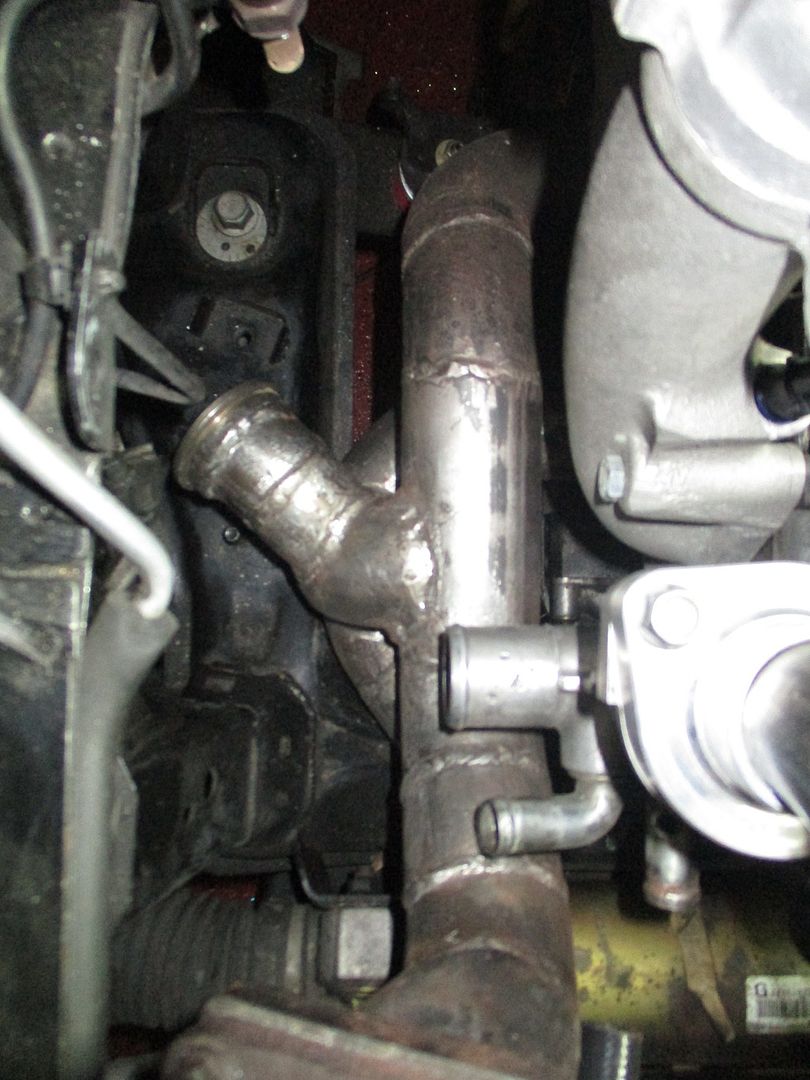
#11
my welder thought mild steel was better for daily driver because of low thermal expansion due to repeated heat cycles. He said thermal expansion is the source of most of the stress. I'm running mild steel now. so far so good. I still have my stainless setup should this one fail.
when the headers fail, are they usually very dramatic? or just a crack which I can drive home?
when the headers fail, are they usually very dramatic? or just a crack which I can drive home?
#12
Registered
Thread Starter
Which Material
Ah, an interesting debate coming up I hope. I’ll put what I think/know here to inform Newbies and give more knowledgeable people the chance to put me straight.
Let's assume we're ignoring fancy techniques as double wall construction and discussing only single wall manifolds.
• With money and manufacturing resources no issues then the best material is probably 321 stainless. However, that's very expensive and hard to find, so let's leave that alone.
• Stainless, let's say 304 (18% Chromium, 8% Nickel) as that's the best of the cheaper austenitic ones, has much higher strength at high temperatures than carbon steels so thinner wall thicknesses make manifolds lighter. The low carbon version, 304L, has fewer issues for welding but works less well at high temperatures. However, stainless has some significant disadvantages compared to carbon steels:
o It expands more with heat (coefficient of thermal expansion 1.7 times that of steel) and so can put much higher stresses on welds.
o Manufacture is more difficult: components are harder to cut and manipulate and welding stainless requires precise joints, better welding equipment and higher skill.
o Welds can be poor due to weld decay or oxidation (even if your welder says he'll use back purging).
o It takes ceramic coatings less well than steel and may cause cracks in the coating from its greater expansion with heat.
o It is more expensive to buy (not too much of an issue if you’ve got all the build equipment and skills at hand) and, when paying someone else to do the work, a lot more expensive to build into a manifold.
• Carbon steel is easier to manipulate, cut and weld, so is much more user-friendly for DIY people like myself without workshop facilities.
I’d prefer stainless but it has significant drawbacks, for example the pipe to turbo flange adapter is far harder for me to make and is expensive to get someone to make and/or weld up. I also have some difficulty in getting a stainless engine flange here in the UK.
As TeamRX8 covers below, most FI manifolds are made out of stainless steel due to carbon steel's lower yield strength at temperature.
Space in RHD Car
The image shows the steering column next to the engine. It gets in the way particularly for removing or fitting the manifold; I don’t want to remove and refit the steering column to get the manifold off if I can help it, as I certainly would have to do for stroker's design even if it fitted around the column.

Ah, an interesting debate coming up I hope. I’ll put what I think/know here to inform Newbies and give more knowledgeable people the chance to put me straight.
Let's assume we're ignoring fancy techniques as double wall construction and discussing only single wall manifolds.
• With money and manufacturing resources no issues then the best material is probably 321 stainless. However, that's very expensive and hard to find, so let's leave that alone.
• Stainless, let's say 304 (18% Chromium, 8% Nickel) as that's the best of the cheaper austenitic ones, has much higher strength at high temperatures than carbon steels so thinner wall thicknesses make manifolds lighter. The low carbon version, 304L, has fewer issues for welding but works less well at high temperatures. However, stainless has some significant disadvantages compared to carbon steels:
o It expands more with heat (coefficient of thermal expansion 1.7 times that of steel) and so can put much higher stresses on welds.
o Manufacture is more difficult: components are harder to cut and manipulate and welding stainless requires precise joints, better welding equipment and higher skill.
o Welds can be poor due to weld decay or oxidation (even if your welder says he'll use back purging).
o It takes ceramic coatings less well than steel and may cause cracks in the coating from its greater expansion with heat.
o It is more expensive to buy (not too much of an issue if you’ve got all the build equipment and skills at hand) and, when paying someone else to do the work, a lot more expensive to build into a manifold.
• Carbon steel is easier to manipulate, cut and weld, so is much more user-friendly for DIY people like myself without workshop facilities.
I’d prefer stainless but it has significant drawbacks, for example the pipe to turbo flange adapter is far harder for me to make and is expensive to get someone to make and/or weld up. I also have some difficulty in getting a stainless engine flange here in the UK.
As TeamRX8 covers below, most FI manifolds are made out of stainless steel due to carbon steel's lower yield strength at temperature.
Space in RHD Car
The image shows the steering column next to the engine. It gets in the way particularly for removing or fitting the manifold; I don’t want to remove and refit the steering column to get the manifold off if I can help it, as I certainly would have to do for stroker's design even if it fitted around the column.
Last edited by Ian_D; 09-10-2015 at 03:40 AM.
#13
Registered
Which Material
Ah, an interesting debate coming up I hope. I’ll put what I think/know here to inform Newbies and give more knowledgeable people the chance to put me straight.
Let's assume we're ignoring fancy techniques as double wall construction and discussing only single wall manifolds.
• With money and manufacturing resources no issues then the best material is probably 321 stainless. However, that's very expensive and hard to find, so let's leave that alone.
• Stainless, let's say 304 (18% Chromium, 8% Nickel) as that's the best of the cheaper austenitic ones, has much higher strength at high temperatures than carbon steels so thinner wall thicknesses make manifolds lighter. The low carbon version, 304L, has fewer issues for welding but works less well at high temperatures. However, stainless has some significant disadvantages compared to carbon steels:
o It expands more with heat (coefficient of thermal expansion 1.7 times that of steel) and so can put much higher stresses on welds.
o Manufacture is more difficult: components are harder to cut and manipulate and welding stainless requires precise joints, better welding equipment and higher skill.
o Welds can be poor due to weld decay or oxidation (even if your welder says he'll use back purging).
o It takes ceramic coatings less well than steel and may cause cracks in the coating from its greater expansion with heat.
o It is more expensive to buy (not too much of an issue if you’ve got all the build equipment and skills at hand) and, when paying someone else to do the work, a lot more expensive to build into a manifold.
• Carbon steel is easier to manipulate, cut and weld, so is much more user-friendly for DIY people like myself without workshop facilities.
I’d prefer stainless but it has significant drawbacks, for example the pipe to turbo flange adapter is far harder for me to make and is expensive to get someone to make and/or weld up. I also have some difficulty in getting a stainless engine flange here in the UK.
Space in RHD Car
The image shows the steering column next to the engine. It gets in the way particularly for removing or fitting the manifold; I don’t want to remove and refit the steering column to get the manifold off if I can help it, as I certainly would have to do for stroker's design even if it fitted around the column.

Ah, an interesting debate coming up I hope. I’ll put what I think/know here to inform Newbies and give more knowledgeable people the chance to put me straight.
Let's assume we're ignoring fancy techniques as double wall construction and discussing only single wall manifolds.
• With money and manufacturing resources no issues then the best material is probably 321 stainless. However, that's very expensive and hard to find, so let's leave that alone.
• Stainless, let's say 304 (18% Chromium, 8% Nickel) as that's the best of the cheaper austenitic ones, has much higher strength at high temperatures than carbon steels so thinner wall thicknesses make manifolds lighter. The low carbon version, 304L, has fewer issues for welding but works less well at high temperatures. However, stainless has some significant disadvantages compared to carbon steels:
o It expands more with heat (coefficient of thermal expansion 1.7 times that of steel) and so can put much higher stresses on welds.
o Manufacture is more difficult: components are harder to cut and manipulate and welding stainless requires precise joints, better welding equipment and higher skill.
o Welds can be poor due to weld decay or oxidation (even if your welder says he'll use back purging).
o It takes ceramic coatings less well than steel and may cause cracks in the coating from its greater expansion with heat.
o It is more expensive to buy (not too much of an issue if you’ve got all the build equipment and skills at hand) and, when paying someone else to do the work, a lot more expensive to build into a manifold.
• Carbon steel is easier to manipulate, cut and weld, so is much more user-friendly for DIY people like myself without workshop facilities.
I’d prefer stainless but it has significant drawbacks, for example the pipe to turbo flange adapter is far harder for me to make and is expensive to get someone to make and/or weld up. I also have some difficulty in getting a stainless engine flange here in the UK.
Space in RHD Car
The image shows the steering column next to the engine. It gets in the way particularly for removing or fitting the manifold; I don’t want to remove and refit the steering column to get the manifold off if I can help it, as I certainly would have to do for stroker's design even if it fitted around the column.
That steering arm is a bummer in that location, it sticks out even more than I imagined. I guess those are the breaks when you drive on the wrong side of the road...

#15
Registered
Thread Starter
Anyway, driving on the wrong side of the road is dangerous; drivers coming the other way may not be able to get out of the way in time. And we drove cars before the US did (I say 'we' as in 'British', my ancestors were farmhands and pack horse leaders, unable to afford a car until my parents' generation; they were all beaten to drive by millions of American farmerss - I've seen it on The Waltons so it must be true).
TeamRX8, thank you for the chart. From your inputs to the Club and your experience clearly you know what you are talking about, and that includes thinking that a rotary exhaust manifold needs to be stainless to cope with the exhaust temperatures (1700-2000 deg F, 900-1100 deg C); I've updated my post above with that extra info. If I end up making a steel one now then it looks as if it will have to be only a short term solution to test out my design before building a permanent one out of stainless (my existing one survived a few thousand miles). That said, I think we need to be careful over taking the chart at temperatures or exhaust gas temperatures of 1700-2000 deg F because stress fractures are likely to occur at welds where other considerations may dominate, fatigue characteristics (changes with temperature at different rates than pure yield strength) are probably more important, the steel temperature will be less than the gas temperature, particularly at the outside where it gets substantial cooling, and the manifold walls will be relatively thick.
Last edited by Ian_D; 09-10-2015 at 04:31 AM.
#17
Registered
Thread Starter
BTW what diameter runners would you use for say 400 rwhp, 11/2" or 2"?
According to my calculatiojns:
However, I know some people prefer 11/2" pipe for their runners, including, I believe, Turblown in their REW swap manifold here.
And then a lot of people, including TeamRX8 above, either use or accept carbon steel engine flanges when surely a stainless flange would be better given their availability in the US (I can't find one off the shelf over here)? I guess the big block of water-cooled steel they bolt to keeps them cool enough to accommodate the differential expansion of carbon and stainless steels.
I feel drawn to 11/2" pipe to err on the side of quicker spool rather than top-end power and a carbon steel engine flange (I can get one here in the UK), but it's all so confusing . . . . . .
According to my calculatiojns:
- My T4 flange has 2 ports each of 50mm x 35 mm (17/8" x 13/8"), an area of 1750mm2 (2.71 in2) and perimeter of 170 mm (6.69")
- My ports have a diameter of 50 mm (17/8"), an area of 1963 mm2 (3.04 in2) and an internal perimeter of 157 mm (6.18")
- Schedule 10 11/2" pipe has an internal diameter of mm 42.86 mm (1.69"), an area of 1443 mm2 (2.24 in2) and an internal perimeter of 135 mm (5.30").
- Schedule 10 2" pipe has an internal diameter of mm 54.79 mm (2.16 in), an area of 2360 mm2 (3.65 in2) and an internal perimeter of 172 mm (6.78").
However, I know some people prefer 11/2" pipe for their runners, including, I believe, Turblown in their REW swap manifold here.
And then a lot of people, including TeamRX8 above, either use or accept carbon steel engine flanges when surely a stainless flange would be better given their availability in the US (I can't find one off the shelf over here)? I guess the big block of water-cooled steel they bolt to keeps them cool enough to accommodate the differential expansion of carbon and stainless steels.
I feel drawn to 11/2" pipe to err on the side of quicker spool rather than top-end power and a carbon steel engine flange (I can get one here in the UK), but it's all so confusing . . . . . .
Last edited by Ian_D; 09-11-2015 at 09:40 AM.
#18
BECAUSE RACECAR
iTrader: (10)
There are cars over the 700RWHP mark with 1.5" runner manifolds. The thing I'd be worried about the most on your setup is your wastegate routing and placement. Looks like poor flow and could have iffy boost control, and you killed the advantages of a twin scroll setup.
#19
Registered
Thread Starter
Arca_Ex, thanks. I was half way through reading your build thread when you posted - a very interesting and enjoyable read.
I've pencilled in the same arrangement as that on your Turblown manifold. I considered locations nearer the turbo but space limitations made them less suitable. The more I look at designing and building my own manifold the more reasonable the Turblown price looks (at least in the US; delivery and taxes add quite a bit for one sent to the UK). If its turbo location fitted my design then even with the extra costs I'd be sorely tempted to bite the bullet and get one.
I've pencilled in the same arrangement as that on your Turblown manifold. I considered locations nearer the turbo but space limitations made them less suitable. The more I look at designing and building my own manifold the more reasonable the Turblown price looks (at least in the US; delivery and taxes add quite a bit for one sent to the UK). If its turbo location fitted my design then even with the extra costs I'd be sorely tempted to bite the bullet and get one.
#20
At the risk of dragging up an old thread, how'd it go in the end? Did you DIY it and if so, what was the choice of piping in the end?
Or did you go for an off the shelf option in the end?
I'm looking in to the RHD options now myself and it'd be good to know what you found works (or didn't'?)
Or did you go for an off the shelf option in the end?
I'm looking in to the RHD options now myself and it'd be good to know what you found works (or didn't'?)
#21
Registered
Thread Starter
Life has got in the way again so I've decided to do my own, designed it, bought the components, modified the 2 flanges, the turbo one being cast, and found a welder.
I haven't yet decided where to put the EGT sensors.
Finding a welder near me who will back purge and gives me any confidence has been unexpectedly time-consuming. The one I'll be using is 40 min drive away.
Given how time-consuming this has been and my costs, mainly for welding and the turbo flange, I advise those not able to weld properly (TIG on stainless with back purging) to buy an off-the-shelf manifold if they can.
I haven't yet decided where to put the EGT sensors.
Finding a welder near me who will back purge and gives me any confidence has been unexpectedly time-consuming. The one I'll be using is 40 min drive away.
Given how time-consuming this has been and my costs, mainly for welding and the turbo flange, I advise those not able to weld properly (TIG on stainless with back purging) to buy an off-the-shelf manifold if they can.
#22
Sounds like its been a hard slog. I've been toying with the idea of diy although the welding skills i would draw on come from a close friend.. of course he's 3 hours away so I'd want to be sure we have everything needed before dragging him up to Sydney!
Having said that I'm inherently lazy and, for the right product I dont mind paying. There just dont seem to be that many options out there.
But i digress..
What materials did you settle on in the end, and what thickness?
Having said that I'm inherently lazy and, for the right product I dont mind paying. There just dont seem to be that many options out there.
But i digress..
What materials did you settle on in the end, and what thickness?
#23
I went with schedule 40 carbon steel from ace stainless(Welcome - Ace Race Parts). I think I paid just over $100 for the materials for the manifold. The downpipe was 16 gauge. I have a shitty flux core welder but was able to turn up the power to max and set in some deep penetrating welds on the .165" thick 2" pipe. The manifold weighs 25-30 lbs, you could drive a truck over it and I'm sure it wouldn't flex or bend. Its not that pretty, but it will probably outlast me.
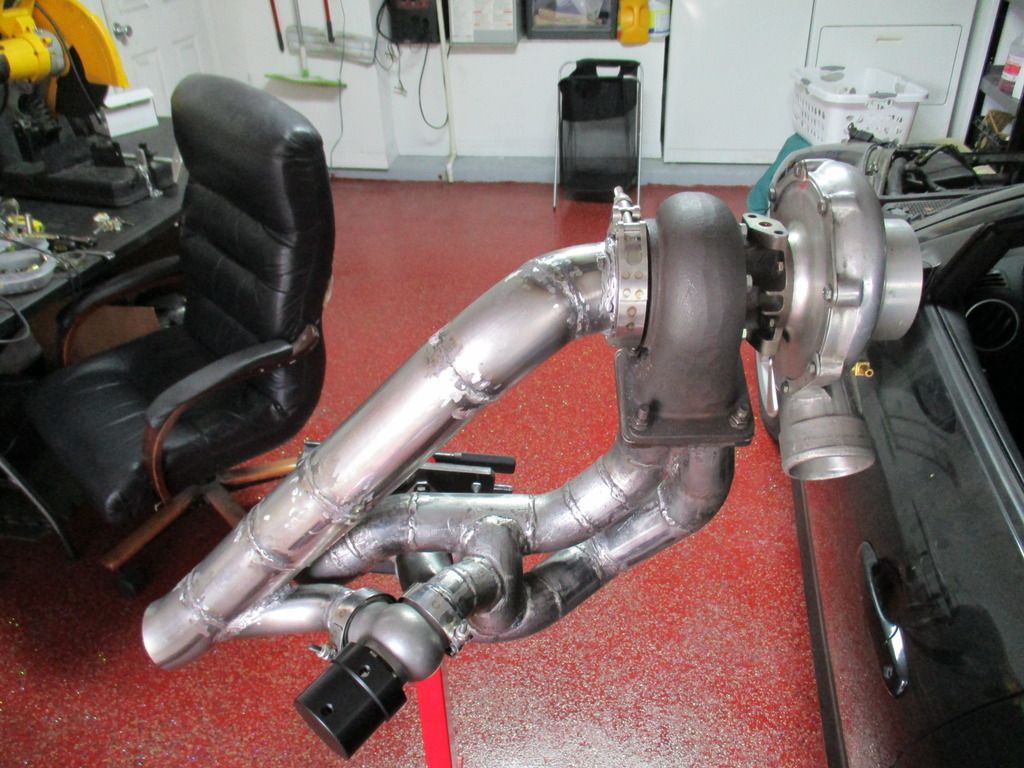
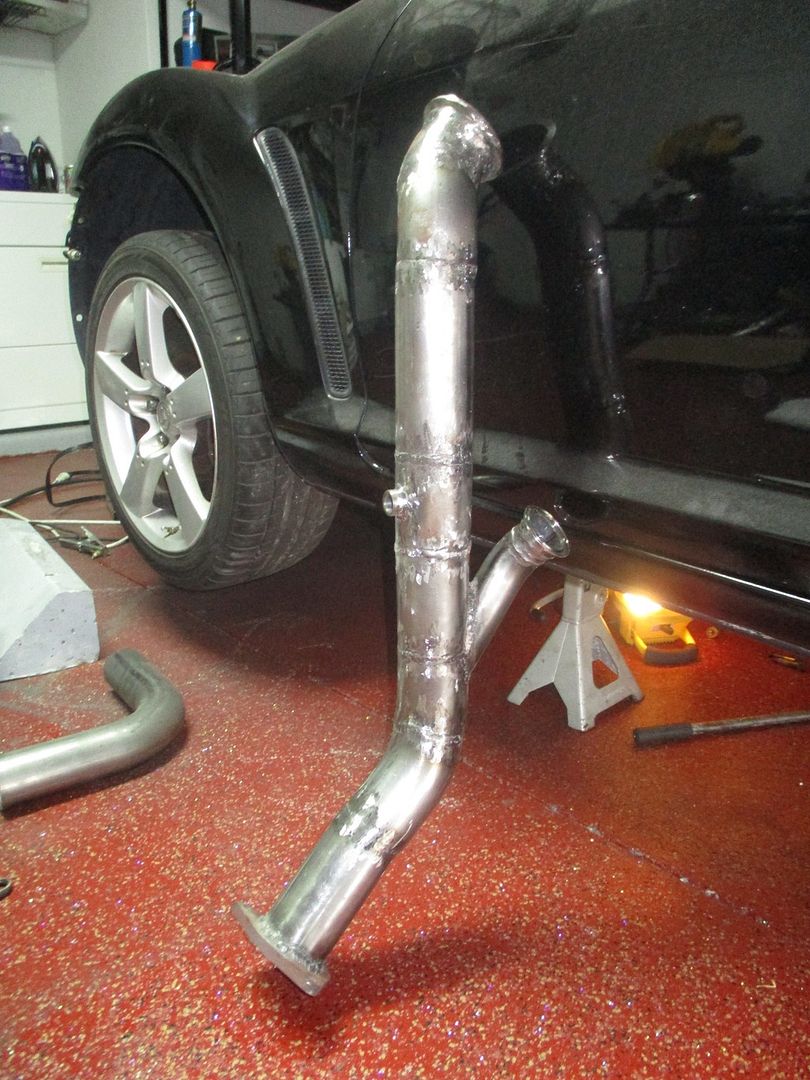


LOL Looks really similar to my manfiold.......
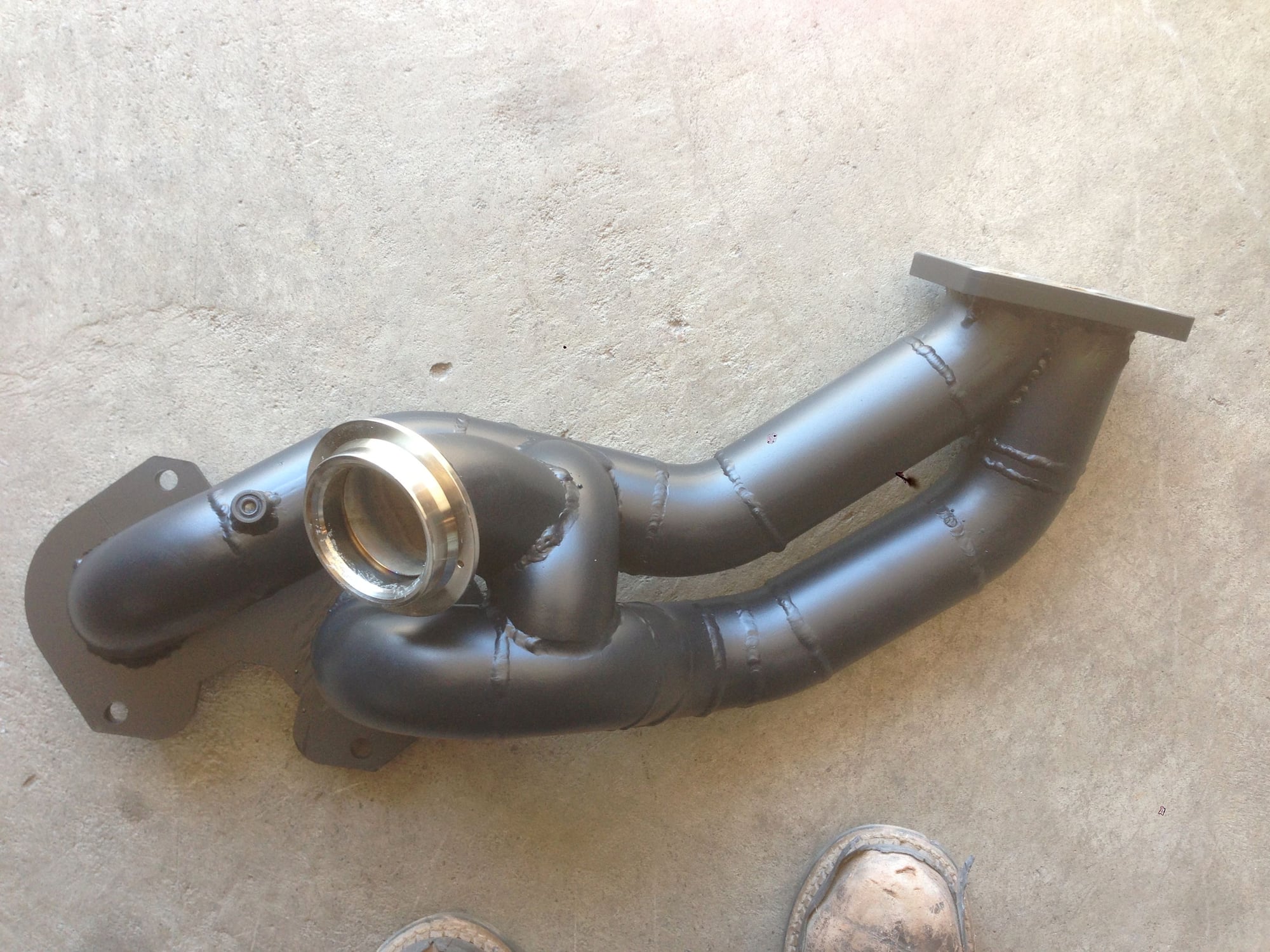
#24
Registered
I must admit that I may have used a few of your designs, but only as a tribute to your greatness  Send me your paypal address and i will give you a 5$ tribute...
Send me your paypal address and i will give you a 5$ tribute...
 Send me your paypal address and i will give you a 5$ tribute...
Send me your paypal address and i will give you a 5$ tribute...



